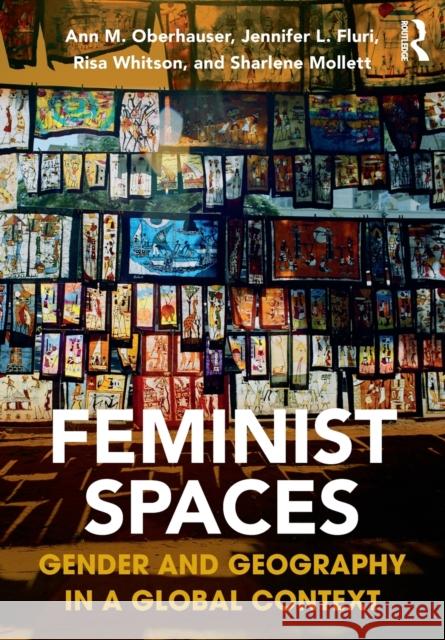Feminist Spaces: Gender and Geography in a Global Context » książka
Feminist Spaces: Gender and Geography in a Global Context
ISBN-13: 9781138924536 / Angielski / Miękka / 2017 / 230 str.
The field of feminist geography has grown from an early focus on the category of 'woman' to analyses of gender identity, transnational feminism, power relations, praxis, and other critical aspects of gendered society and space. This book will introduce students and academic researchers to major themes and empirical studies in feminist geography. In addition to considering gender as primary subject, this book will also provide a comprehensive overview of feminist geography by highlighting contemporary research conducted from a feminist framework which goes beyond the theme of gender to include issues such as social justice, activism, (dis)ability, and critical pedagogy. Feminist scholarship encompasses a broad and inclusive perspective on how our lives are shaped by gender, sexuality, class, race/ethnicity, and other axes of difference and power relations in today's society. Recent post-structural frameworks in feminist geography draw from postmodernity, post colonialism, and queer theory to explore the intersections and asymmetrical relations of gender identities and space. The book also highlights cross-cultural and global approaches that critically engage with gender and feminism. Through case studies, this book will challenge the construction of dichotomies that tend to oversimplify categories such as developed and developing, urban and rural, and North and South, without accounting for the fluid and intersecting aspects of gender, space, and place. Finally, activism and critical engagement with diverse communities are emphasized throughout the book to recognize this tradition in the field of feminism as well as within the discipline of geography. Combined theory and practice serves as a central theme for much of the research in this field and will be a core aspect of this text. Indeed, this pedagogical strategy underlies our approach to teaching students about social justice and equality. The emphasis on active learning will not only encourage students to explore and analyze their own positionality, it will also engage them in changing and impacting their surroundings.











